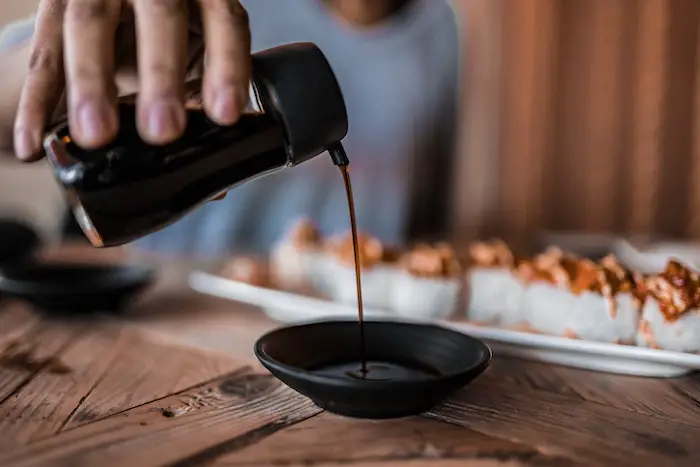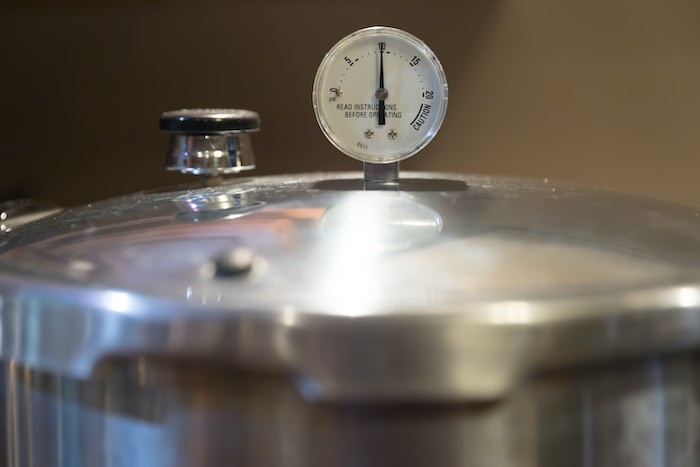Soy sauce is a great condiment originally hailing from Asia. It’s a fantastic seasoning for stir fry dishes, meats, soups, and many other foods. However, soy sauce is high in sodium and notorious for having exorbitant levels of MSG. These things can contribute to high blood pressure and heart disease. So, it begs the question, does all soy sauce have MSG?
No, not all soy sauce contains MSG. There are many kinds on the market nowadays that do not contain this ingredient. The push for more organic, whole, and pure foods has driven the demand for better, healthier, and less processed products. Soy sauce is no exception. However, you do have to specifically look for these MSG-free options when searching for soy sauces to meet your preferences.
The good news is that if MSG is not present in a soy sauce product, the manufacturer will put this information on the label. If you don’t see something along the lines of “MSG-free” written anywhere on the container, you will generally need to assume that it contains MSG to stay on the safe side of things.
What is MSG?
MSG, or monosodium glutamate, is a sodium salt first created in 1908 by a Japanese biochemist. He was trying to discover what gave dashi its savory, strong flavor. (Dashi is a broth that is prominent in Japanese cuisine.) In isolating the sea kelp within this broth, MSG officially came into being.
Ever since its discovery, this pure crystalline extract has become an integral chemical in the food industry. Not only is it notoriously found in various Chinese foods, but it is also present in many canned foods and in soy sauce.
Why is MSG Bad for Your Health?
Beginning in the 1960s, there was speculation that MSG was contributing to heart disease, cardiac arrest, and high blood pressure. Indeed, an overabundance of salt in the diet isn’t good for one’s blood nor circulation. There are many studies over the last few decades that demonstrate how salt can damage the delicate processes of the heart. Additionally, MSG has also been thought to cause trouble with individuals prone to experiencing headaches and migraines, but this has not been 100% proven to be a cause of such ailments.
There’s a lot of debate currently surrounding the safety and healthiness of MSG, but there is little to no debate on how too much salt is unhealthy for a regular diet by comparison. Therefore, reducing salt intake is essential to maintaining good overall health, and this is another factor relevant in the overall health concerns regarding soy sauce.
Which Brands of Soy Sauce Don’t Have MSG?
There are several types of soy sauce that either remove MSG altogether or contain low amounts of it. Consider the list of the following MSG-free soy sauce options below to see if they suit your preferences. Remember, if the soy sauce is inexpensive, you can bet there’s a certain amount of MSG added to the product.

- Kikkoman 100% Organic Soy Sauce: This soy sauce by Kikkoman comes straight from Japan and is 100% certified organic. The ingredients are simple: soybeans, salt, water, and wheat. There are no preservatives, including no MSG.
- San-J Tamari Gluten Free Soy Sauce: For those who are allergic to or have an intolerance for wheat, this soy sauce is the ideal choice for you. It contains water, soybeans, salt, and alcohol (for preserving freshness). While some may not like the alcohol content present in this soy sauce, they do have a version that’s alcohol-free as well.
- Kishibori Shoyu Authentic Japanese Soy Sauce: This is a top-notch artisanal soy sauce with a price tag to match, but the extra cost is worth it. This soy sauce undergoes fermentation for a year in 100-year-old cedar barrels. It has a balanced smoothness without including preservatives like MSG or alcohol.
- Ohsawa Nama Shoyu, Organic and Aged in 150 Year Cedar Kegs: Nama Shoyu is a raw (nama), unpasteurized Japanese-style soy sauce (shoyu) popular amongst those following a raw and vegan food diet. Though nama shoyu is actually heated well above the usually raw-allowed 115°F, it is still used by many raw foodists because it maintains the most beneficial living enzymes.
Ohsawa Nama Shoyu is fermented, or cultured, in the traditional way, in wooden barrels under the sun. The label boasts “living enzymes and beneficial organisms”. - Haku Mizunara Whisky Barrel Aged Shoyu: Direct from the Kyoto Prefecture in Japan, this is an exceptional soy sauce aged in whiskey barrels utilizing a special Japanese oak tree called Mizunara. The process borrows from ancient ancestral methods of preservation. This also means there’s no MSG or other chemicals used whatsoever.
What to Look For in an MSG-Free Soy Sauce
When hunting down a soy sauce that doesn’t have MSG, there are a few things you can look for. First, source it from an origin country of an independent manufacturer rather than a mass producer. The handcrafted types are a surefire way to ensure you get what’s indicated on the label.
The other thing to note is the ingredients. If at any time they use long chemical names in the recipe, go with a different brand. As a general rule, if you can read and pronounce the ingredient list—and know what those ingredients are—you will be far better off.
Avoid soy sauces that say “natural and artificial flavors” on the containers. This is because this labeling gives unscrupulous companies looking to make a profit the license to add anything under the guise of “proprietary information.” There is no way to know what these ingredients are, therefore no way in which you can determine whether they may include MSG.
See Also:
Can You Bake Peanut Butter By Itself?
Do Lemon And Chocolate Go Together?
7 Side Dishes That Go Perfectly With Monte Cristo Sandwiches
8 Best Cheese Options For A Chicken Sandwich
Why Are Most Chefs Male? (Detailed Explanation)


